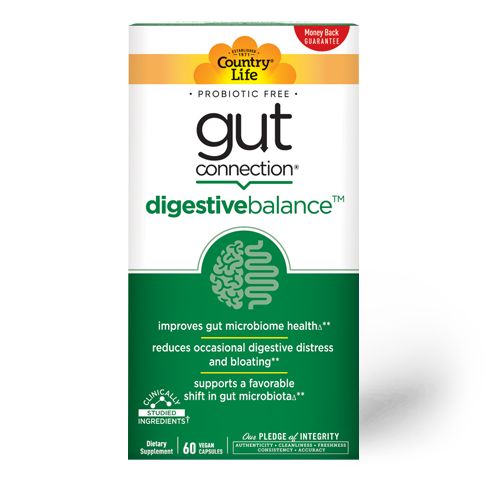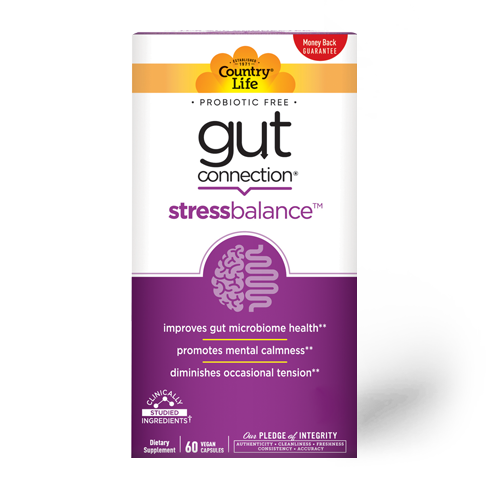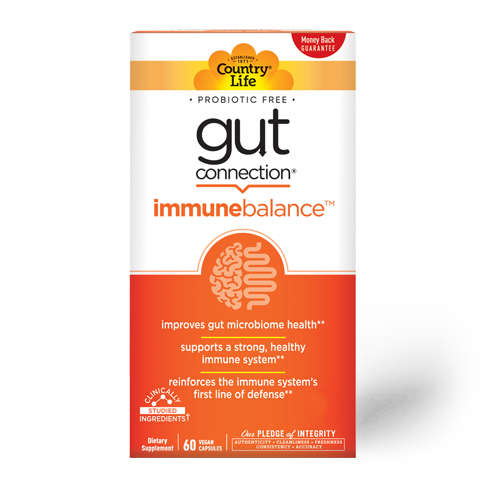
You’ve likely heard of prebiotics and probiotics when it comes to gut health. But you may not have heard much about a more recent “biotic” that can help contribute to a healthy gut: postbiotics.
Less widely known than prebiotics and probiotics, recent research suggests that postbiotics have at least an equally important role when it comes to maintaining and supporting our health.
What are Postbiotics?
Like prebiotics and probiotics, postbiotics are another group of beneficial compounds that can support your health. They have been linked to a number of health benefits for the gut, the immune system, and more.
Postbiotics are byproducts of the fermentation process that is carried out by probiotics in the intestine. Postbiotics are created by probiotics as they do their work in your digestive system. They are essentially the “waste” of probiotics, resulting naturally from the microorganisms living in our gut.
Some examples of postbiotics include organic acids, bacteriocins, carbonic substances, short-chain fatty acids, and enzymes.
The Difference Between Prebiotics, Probiotics and Postbiotics
Prebiotics, probiotics, postbiotics. While their names are similar and they are related, it’s important to know the difference between these three groups of compounds.
- Prebiotics - A group of nutrients that feed the beneficial bacteria in your gut, therefore promoting the growth of good bacteria. Prebiotics are mainly dietary fiber, like what is found in fruits, vegetables, and whole grains.
- Probiotics - Probiotics are the actual gut microbes - the healthy bacteria that live inside your gut and convert fiber into compounds that have benefits for your health. Probiotics are found in foods like yogurt, kefir, kombucha, and kimchi.
- Postbiotics - Postbiotics are the bioactive compounds produced when the probiotic bacteria (intestinal microbes) consume prebiotics (fiber). In other words, they result from probiotic activity in the gut, like fermentation.
Postbiotic Foods and Supplements
As postbiotics are the end products of prebiotics and probiotics, you can increase the number of postbiotics in your body by consuming more prebiotic and probiotic-rich foods. Some foods that can support increased concentration of postbiotics in the gut are:
- Yogurt
- Sauerkraut
- Kefir
- Pickles
- Sourdough bread
- Buttermilk
Since postbiotics are fairly new compared to prebiotics and probiotics, postbiotics supplements are not as widely available, but can still be found online and in some health food stores. It is recommended to take a postbiotic supplement that also contains a prebiotic to support the production of postbiotics.
Take Care of Your Gut Health
Gut health is an important component of overall health, so you’ll want to do what you can to maintain a healthy gut. First and foremost, focus on adopting a well-balanced diet that's rich in fiber, including fruits and vegetables. From there, you can supplement as necessary or recommended by your medical professional.
Country Life Vitamins carries a wide variety of digestive support products to support your gut health journey, including our line of Gut Connection® products, our probiotics supplements, and more.















Share:
The Dr. Audrey Series: Bone Health
The Dr. Audrey Series: Bone Health